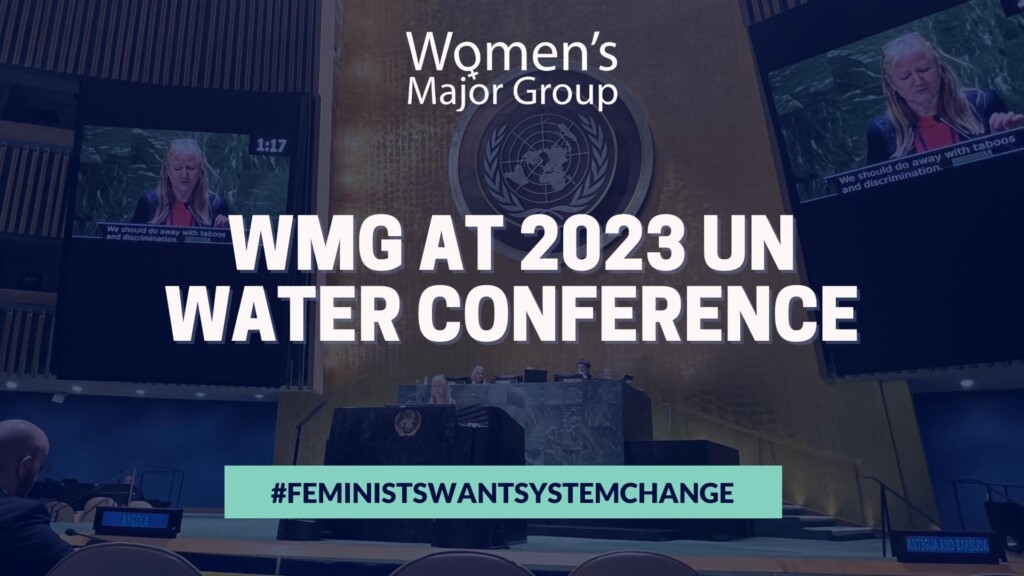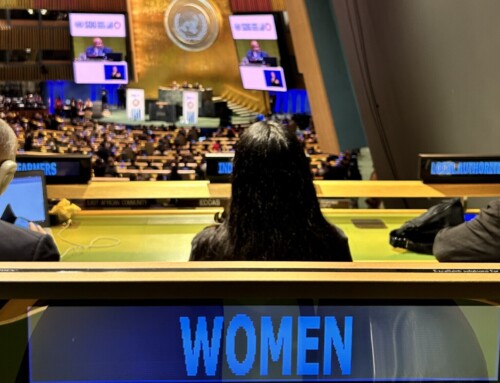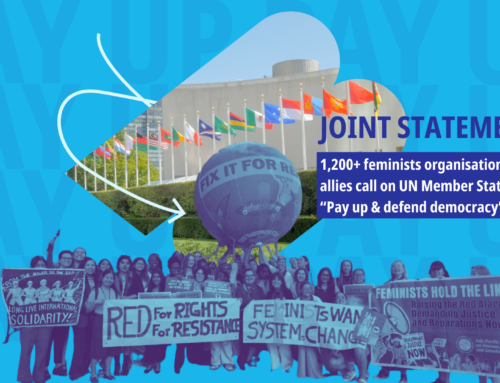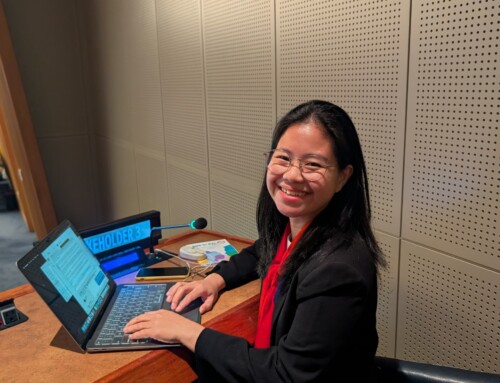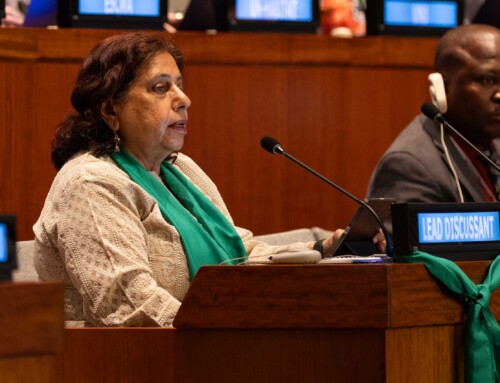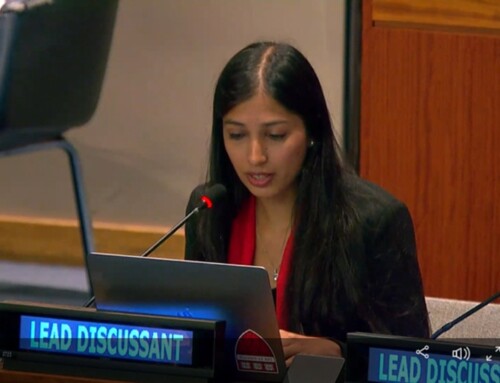The 2023 UN Water Conference took place from 22-24 March 2023, at the UN Headquarters in New York, as a Midterm Comprehensive Review of the Implementation of the Objectives of the International Decade for Action, “Water for Sustainable Development”, 2018–2028. The key objective of the Conference, held coinciding with World Water Day, aimed support to achieve the internationally agreed water-related goals and targets, including those contained in the 2030 Agenda for Sustainable Development.
The Women’s Major Group and our members had a strong presence at the 2023 UN Water Conference starting with our commitment for Menstrual Health and Dignity and to keep advocating for the development of National Menstrual Health Strategies, made by WECF on behalf of WMG at the Water Conference. Millions of girls do not have safe sanitation at school and are forced to stay home and miss school during their period. Millions of young girls and other menstruators suffer from menstrual-poverty, they have no access to affordable sanitation products. So far only some 40 countries are reporting on menstrual health management in their reporting to the Joint Monitoring Programme (JMP). Even fewer governments are working on promoting menstrual health products that are better for the environment and climate, that can be reused and are free of toxic chemicals. Menstrual health and dignity should be at the center of our Water and Sanitation policies, and we should do away with menstrual taboos and discrimination and ensure that each menstruator has:
- Access to sanitation with safe spaces for menstruation in schools including free of charge reusable menstrual products, access to clean water and soap, waste baskets and privacy
- Ensure that menstruators have access to a basket of choice of affordable menstrual products, including by a zero-VAT on (reusable) menstrual products.
- Promote local production of a range of reusable menstrual health and hygiene products, including pads and cups, that create jobs and access in particular in rural areas
- Ensure that comprehensive sexuality education covers menstruation
- Strengthen feminist menstrual movements in region, such as the Pacific Menstrual Health Coalition We commit to continue advocating for menstrual health and dignity rights in our countries and regions for the period till 2030, to ensure full implementation of SDG6.2.
WMG co-organized two informal special events at the Conference:
- Water Leadership: Uniting for a sustainable world (Livestream)
- Radical Collaboration for Water Resilience: Action with our greatest Allies in the Climate Crisis (Livestream)
Sascha Gabizon (WECF) delivered a statement on menstrual hygiene, on behalf of the Women’s Major Group in the Conference Plenary. Our members have also joined many side events as speakers.
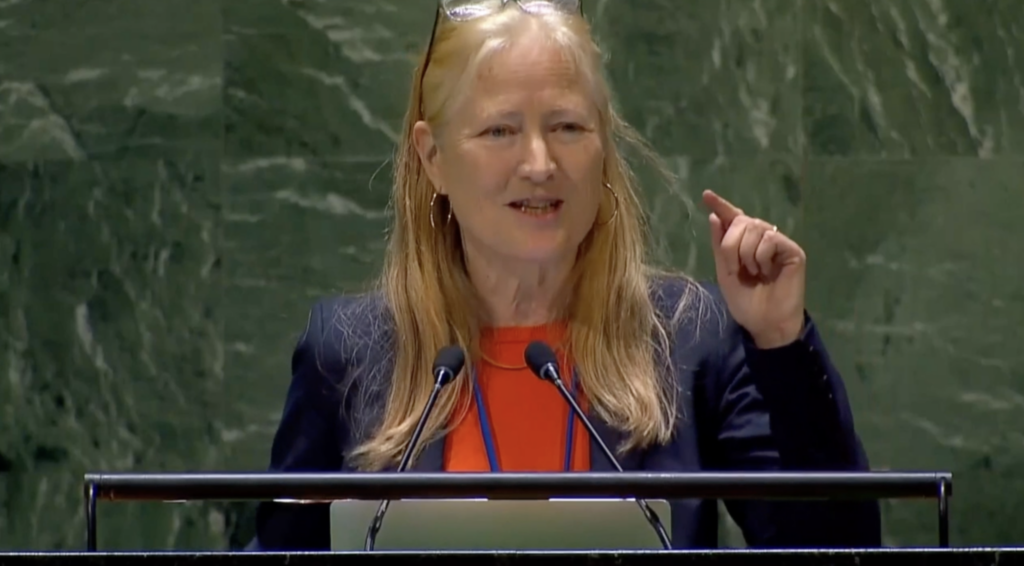
Sascha Gabizon (WECF) representing WMG at 2023 UN Water Conference Plenary. Click on image to watch full statement.
The intervention by Viva Tatawaqa (Management Collective member of DIVA for Equality Fiji, QAQA Grassroots Young Feminist network, RESURJ, PICAN and the Pacific Islands Feminist Alliance for Climate Justice), on behalf of WMG remained undelivered due to time constraint. Read Viva’s intervention on the need to recognize access to water and sanitation as gender justice and human rights issues, and recommendations for governments here.
The Water Action Agenda, the key outcome of the Conference, captured over 700 commitments, with the promise of a number of other follow-up steps such as appointment of a Special Envoy on Water. As the conference outcomes receive follow-up in the three key upcoming Summits: the SDG Summit during the UN General Assembly in September 2023, the Summit of the Future in 2024, the World Social Summit in 2025, and through the annual High- level political forum on sustainable development (HLPF), Conference of Parties and other United Nations processes, as well as the Dushanbe Water Process, WMG will continue advocating for governments to uphold the commitments they have made, in the: Convention to End Discrimination Against all Women and Girls, UN General Assembly Resolution on the Human Right to Water and Sanitation, 2030 Agenda, Sustainable Development Goal target 6.2 i.e. women and girl’s rights to water and sanitation should be ensured.

